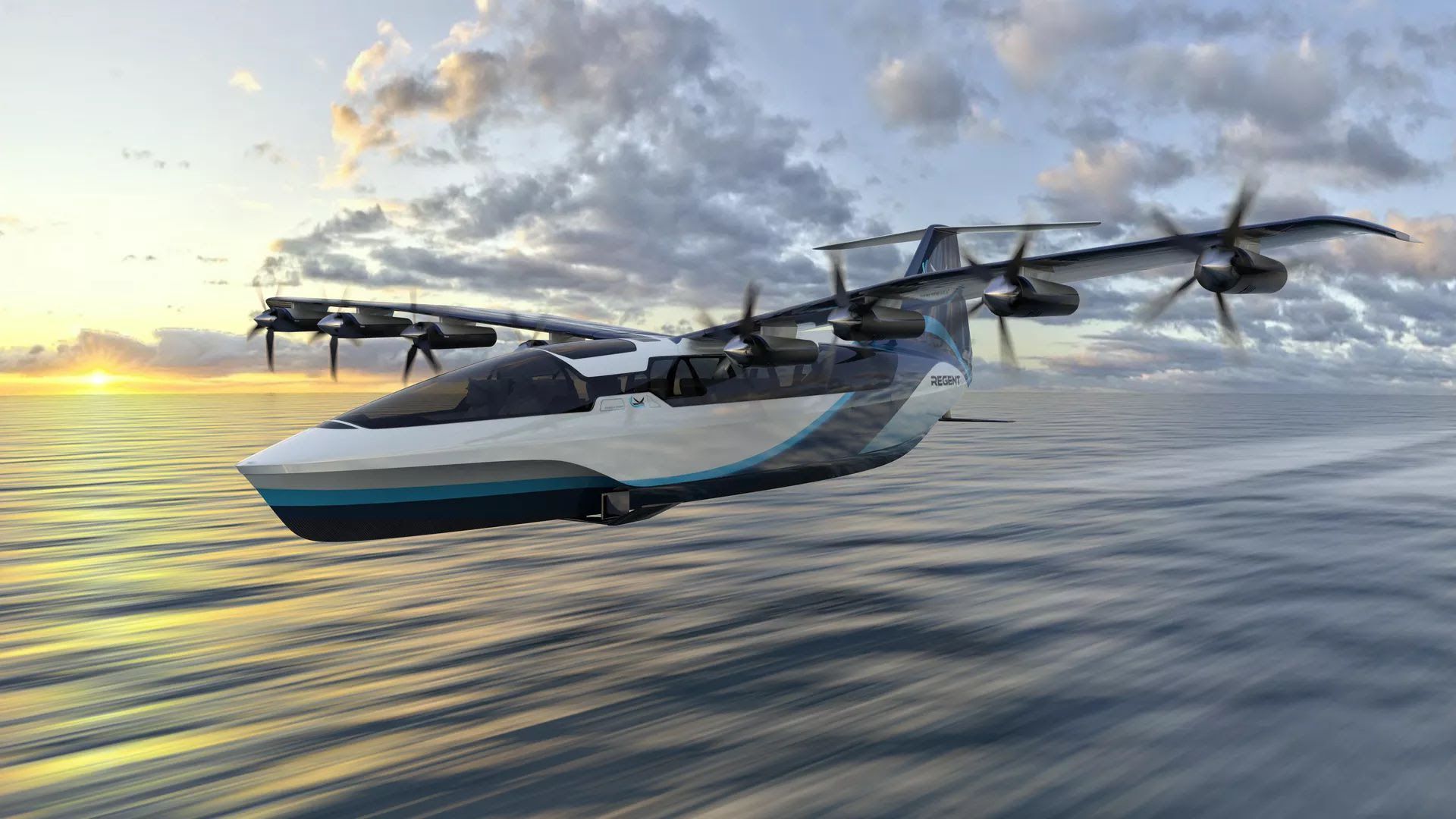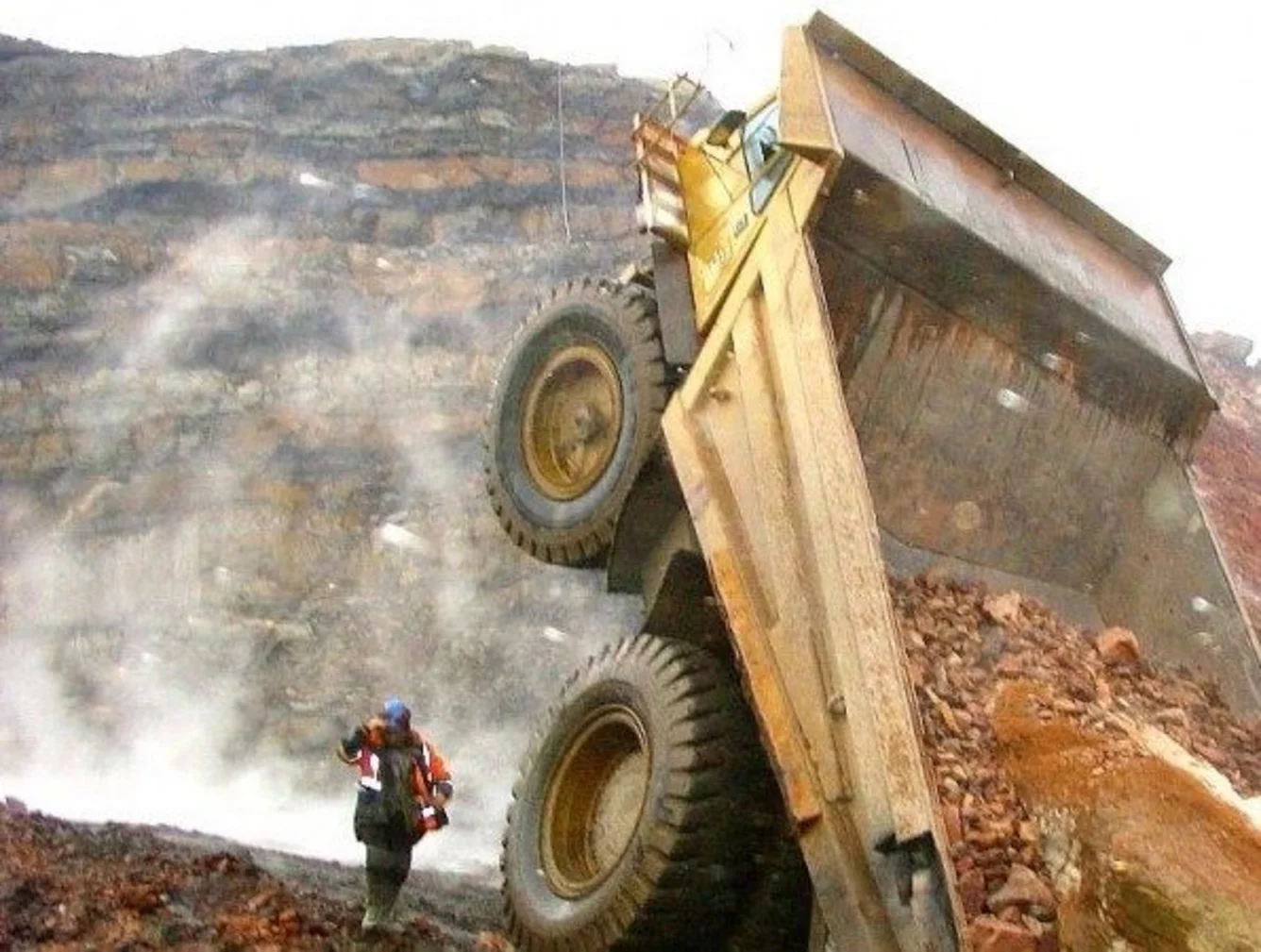Strategic Minerals: from Tesla's Master Plan to All-Electric 'Seagliders'
Apr 19, 2023
Insights
James Holman
James Holman
From big dollar investments to seagliders: A roundup of the latest developments in the world of electric vehicles, renewable energy and critical minerals. Tesla's Master Plan to achieve a carbon-neutral future has highlighted the need for significant investment to expand solar-panel and metal-refinery factories and retool heavy industries. Lithium prices have been falling, leading to uncertainty and delays in orders. Ford has made its third deal with a Chinese company to secure lithium hydroxide supplies for electric vehicle batteries, while also investing in nickel processing projects in Indonesia. China's battery king, CATL, faces scrutiny over its dominance in the battery sector, while Australia's critical mineral exports like lithium and nickel are predicted to match coal by 2028. Meanwhile, Europe needs to "step up" its game to compete in the global battery industry. Finally, the introduction of all-electric "seagliders" in Hawaii by Regent, Hawaiian carrier Mokulele Airlines, and investment firm Pacific Current promises to revolutionize air travel. The summary below includes views from the articles referenced that are not necessarily the views of Merk.
Please note that the articles listed below are the opinions of the authors and are provided for information purposes and do not necessarily reflect my opinions nor the opinions of Merk Investments; emphasis may have been added in quoted text.
Tesla's Carbon-Neutral Future Plan
Tesla has revealed its plan for a carbon-neutral future, (Bloomberg) highlighting the need for an investment of $10tn to achieve a world entirely reliant on renewable energy. The company's Master Plan Part 3 outlines a significant expansion of solar-panel and metal-refinery factories within the next 20 years, required to generate renewable power and store electricity for global use. Heavy industries such as cement and steel-making would also need to be retooled to produce sustainable energy. Furthermore, the plan requires the establishment of global battery farms and underground hydrogen storage facilities. Tesla argues that continuing reliance on fossil fuels would cost approximately $14tn, and the increasing demand for mined metals to build out this spending is significant. The white paper highlights the requirement for mining capital expenditure and spending on refining, totaling $502bn and $662bn, respectively, to produce the necessary nickel, lithium, copper and other materials required for batteries and clean-energy equipment.
Tesla's Potential Trillion-Dollar Miscalculation
Tesla's Master Plan may be underestimating the investment required for mining. (Benchmark). According to Tesla, the bill for mining, refining, chemicals, battery production, and gigafactories will come to a whopping $3.4 trillion. That's a lot of dough! But here's the kicker: Tesla's estimates for investment in mining, refining, and chemicals come in at $1.4 trillion, which is below Benchmark's estimate of $2.5 trillion, and less than half of Benchmark's upper bound estimate of $3 trillion. So, it looks like Elon Musk and his team might need to dig a little deeper to mine the necessary materials for their electric vehicles and energy storage.
Volkswagen's Plan to Invest in Mines
Volkswagen's plan to invest in mines and meet 50% of its own demand for battery cells is part of its strategy to become a global battery supplier (Reuters), according to board member Thomas Schmall. Volkswagen's battery unit, PowerCo, aims to supply Ford with cells for 1.2 million vehicles it is building in Europe on Volkswagen's electric MEB platform. Volkswagen has partnered with mining firms in Canada and Schmall says the carmaker needs to invest directly in mines to help guarantee the supply of raw materials. PowerCo's roadmap includes annual sales of more than €20 billion ($21.2 billion) by 2030. The unit plans to begin production in 2025 in Salzgitter, Germany, followed by plants in Spain and Canada.
EV Sales are Hot in the UK
New car registrations in the UK grew for the eighth consecutive month in March, with a year-on-year increase of 18.2%. (Reuters), making it the strongest three-month period since 2019. Battery electric vehicle (BEV) sales reached a monthly record high of 46,626, a YoY increase of 18.6%. However, petrol-powered vehicles remained the most popular fuel type, accounting for 56.3% of new units in March. The Society of Motor Manufacturers and Traders (SMMT) attributed the rise to a reduction in supply chain issues but emphasized that public infrastructure investment was necessary to support the Zero Emission Vehicle Mandate, which will be enforced in less than nine months. SMMT CEO Mike Hawes stated that the record-breaking month for zero-emission vehicles reflected increased consumer choice and availability.
Lithium Prices in Limbo: Overinvestment, EV Market Shifts, and Environmental Concerns Shape the Future of Battery Supply
Lithium prices have been falling due to several reasons (Benchmark): 1) Overinvestment in lithium production for the previous year; 2) Customers delaying EV purchases in anticipation of lower car prices. Attempts to reduce inventory levels have also been made throughout the battery value chain, with cathode companies probably holding the minimum volume of inventories. Uncertainty surrounding lithium prices has led to customers holding orders and waiting for stabilization. While the long-term outlook looks balanced in 2024 and 2025, this year is different due to various unknown factors. Ganfeng is exploring Chinese deposits but believes that Africa will be the next significant opportunity for lithium investment. Environmental concerns, especially related to open-pit mining, are a worry for the Chinese government's environment department, but local governments sometimes prioritize promoting business over environmental concerns.
Ford's Lithium Leap: Securing Chinese Lithium Hydroxide Supplies for Electric Vehicle Batteries
Ford has made its third deal with a Chinese company this year, this time with Canmax Technologies, (Benchmark) to secure lithium hydroxide supplies for electric vehicle batteries. The agreement, which lasts three years and can be extended until the end of 2029, comes after Ford agreed to license lithium iron phosphate battery technology from China's largest battery company, CATL, in February. Last month, the carmaker also invested in a nickel processing project in Indonesia alongside China's Huayou Cobalt and Brazilian miner Vale. It's not clear how Ford will use Canmax's lithium or which region will be supplied with batteries containing the Chinese supply.
BYD Unveils World's First Blade Battery Factory
BYD unveils the world's first blade battery factory to accelerate EV adoption. (BYD) Chinese automaker BYD has unveiled the world's first blade battery factory in Chongqing, China. The factory is set to produce batteries with an annual capacity of 20 GWh, further strengthening BYD's position as a major player in the global electric vehicle market. Blade batteries, which use lithium iron phosphate (LiFePO4) technology, offer improved safety and longer cycle life compared to traditional lithium-ion batteries. The new factory is expected to accelerate the adoption of electric vehicles worldwide by providing safer and more reliable battery options for automakers.
Norway's Ambitious Electric Ferry Project
Norway launches ambitious electric ferry project to cut emissions. (The Maritime Executive) Norway has initiated an ambitious project to deploy electric ferries along its fjords and coastal routes. As a country with a long coastline and robust maritime industry, Norway is dedicated to cutting greenhouse gas emissions from its shipping sector. The electric ferries will not only reduce emissions, but also help the country meet its climate goals. The government has allocated significant funds to support the development of new electric ferries and the necessary charging infrastructure. This project serves as a testament to Norway's commitment to green transportation and sets an example for other countries to follow.
Indian EV Startup Secures Major Funding
Ola Electric raises $250 million in a fresh funding round. (Economic Times) Indian electric vehicle (EV) startup Ola Electric has secured $250 million in a new funding round, led by top investors. Ola Electric, a subsidiary of ride-hailing giant Ola, is focused on developing electric two-wheelers and the necessary charging infrastructure in India. The funds will be used to expand production capacity, develop new products, and invest in battery and charging technology. With a massive and growing market for two-wheelers in India, Ola Electric's success could pave the way for a cleaner, more sustainable future in the country's transportation sector.
European Union Aims for Zero Emission City Logistics by 2030
EU targets zero-emission city logistics by 2030. (Europa) The European Union is aiming for zero-emission city logistics by 2030, in line with its ambitious climate goals. The initiative includes promoting the use of electric vehicles for urban deliveries and providing support for the development of necessary charging infrastructure. The EU's plan also calls for establishing low-emission zones in cities and encouraging the use of alternative modes of transportation, such as cargo bikes and electric vans. By focusing on city logistics, the EU aims to significantly reduce the environmental impact of urban freight transport and contribute to cleaner, more sustainable cities.
New Bill maybe not Helping Tax Credits
Meanwhile, Ford and Stellantis have both said new rules will halve tax credits for most of their electric and plug-in electric hybrid models from April 18 (Reuters), after Congress mandated this as part of a $430 billion climate bill. The rules are intended to move U.S. battery production and supply chains away from China, which dominates global supply chains for products such as EV batteries and solar panels.
Concern Around CATL's Swiss Listing
China’s battery king faces scrutiny over EV market dominance. (Financial Times).In a world where Contemporary Amperex Technology Co., Limited (known as "CATL") reigns supreme in the battery sector as the biggest lithium-ion battery manufacturer for EVs, Washington and Beijing's bigwigs are biting their nails over one corporation's incredible dominance. In early March, China's President Xi shares his mixed feelings with CATL's head honcho, Zeng Yuqun, in Beijing. Soon after, the China Securities Regulatory Commission (CSRC) swoops in, whispering "window guidance" for CATL to scale back its ambitious $5 billion offering and related Swiss secondary listing plan to a modest $1 billion or less. The result? CATL hits pause on the listing, leaving everyone on the edge of their seats. As with any publicly traded security we mention, this is neither an investment recommendation nor investment advice.
Critical Mineral Income Potentially Bigger than Coal Income
Australia critical mineral export revenue to match coal by 2028 - govt report. (Reuters). Picture a future where Australia's critical mineral exports like lithium and nickel are racing to match coal's export prowess by 2028. The energy transition is picking up steam, and the government's five-year outlook update tells the thrilling tale. As Australia's industry department predicts yet another record-breaking year for resource exports suggests global coal demand has peaked, while the hunger for lithium, nickel, copper, and rare earths is surging.
Europe Upping their Game to Compete in a Global Battery Market
Europe needs to “step up” its game to compete in global battery industry Šefčovič says. (Benchmark). The race to be a global battery leader is on, and Maroš Šefčovič, Vice President of the European Commission, knows exactly what the EU needs to do: "Step up our game at both EU and national levels!" He envisions a world where a level playing field encourages technological bridges, not barriers, across the Atlantic. With Europe and the US joining forces, Šefčovič highlights their shared goal: minimizing the negative effects of the Inflation Reduction Act on European competitiveness. Together, they're ready to power through any challenge.
Global EV Market Continues to Grow
This week Regent announced it is partnering with Hawaiian carrier Mokulele Airlines and investment firm Pacific Current to create an all electric seaglider network in Hawaii. Service is expected to begin by 2025 with a fleet of 12-passenger Viceroy seagliders that will “fly like pelicans”, about 10 to 30 feet over the water, at speeds of up to 180 miles per hour. This sounds awesome!


Ridiculous Mining Jokes
- What do you call it when a piano falls down a mine shaft? ...A flat miner.
- I was just reading up on how they rescued the Chilean miners...Most of it was just boring.
Please reach out with any questions you have. Follow me at twitter.com/jamieholman.
James Holman
Portfolio Manager, Merk Investments
This report was prepared by Merk Investments LLC (“Merk Investments”), and reflects the current opinion of the authors. It is based upon sources and data believed to be accurate and reliable. Merk Investments makes no representation regarding the advisability of investing in the products herein. The information contained herein reflects Merk Investments’ current views and opinions with respect to, among other things, future events and financial performance. Charts, graphs, and tables are provided for illustrative purposes only. Any forward-looking statements contained herein are based on current estimates and expectations. Opinions and forward-looking statements expressed are subject to change without notice. This information does not constitute investment advice and is not intended as an endorsement of any specific investment. The information contained herein is general in nature and is provided solely for educational and informational purposes. The information provided does not constitute legal, financial or tax advice. You should obtain advice specific to your circumstances from your own legal, financial and tax advisors. Past performance is no guarantee of future results.
Become a Part of the Merk Community
Subscribe to our regular reports and research, as well as all updates relating to MERK
We adhere to a strict Privacy Policy governing the handling of your information. Opt-out any time.
thoroughly researched perspectives on the trends shaping global markets.
topics may span disruptive tech, income strategies & emerging economies.
27.6k subscribers

